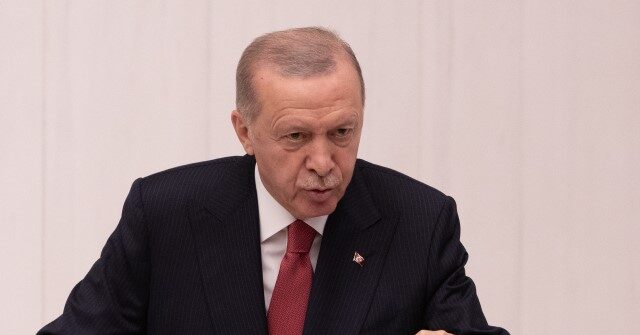On October 7, 2023, Hamas launched a catastrophic incursion into Israel, culminating in the brutal murder of civilians and widespread atrocities, marking one of the most severe terrorist attacks in the nation’s history. Israeli estimates indicate that around 1,200 individuals lost their lives during the onslaught, including young children and entire families, with many others, approximately 250, abducted into Gaza—around 101 of whom remain unaccounted for. The unprecedented nature of this attack drew international condemnation and provoked a military response from Israel, which declared war on Hamas the very next day. As global leaders reacted to the unfolding situation, one of the most outspoken figures was Turkish President Recep Tayyip Erdogan, a fervent supporter of Hamas.
In a statement on the anniversary of the attacks, Erdogan likened Israeli Prime Minister Benjamin Netanyahu to Adolf Hitler and branded October 7 as the day Israel purportedly initiated a “genocide” in Gaza. He ignored the context of Hamas’s assault and instead emphasized what he perceived as ongoing Israeli aggression, pledging that Israel would eventually be held accountable for what he termed genocidal actions against Palestinians. Erdogan’s rhetoric is indicative of his long-standing alignment with Hamas and his view of the conflict, framed not by the heinous nature of the initial attack but rather by depicting Israel’s military response as categorical aggression against an oppressed population.
Erdogan intensified his criticisms during a speech to university students in Ankara, condemning the so-called “Zionist lobby” in Western nations for enabling Israel’s defensive measures and alleging that these countries suppress peaceable pro-Hamas demonstrations. However, contrary to Erdogan’s assertions, many protests supporting Hamas in the U.S. and beyond have devolved into violence, raising public safety concerns that necessitated police intervention. For instance, a climactic outbreak of violence at a pro-Hamas rally in New York resulted in an attack on a Democratic activist who expressed opposition to Hamas, highlighting the polarizing nature of public sentiments surrounding the conflict.
In solidarity with Hamas, Erdogan’s government officials echoed his sentiments, with Vice President Cevdet Yilmaz and communication director Fahrettin Altun both accusing Israel of genocide while failing to mention the initial Hamas attacks that sparked the conflict. Yilmaz claimed that an ongoing humanitarian tragedy unfolds in Gaza, while Altun threatened that Israel would ultimately answer for its actions and expressed unwavering support for Palestinians against perceived oppression. This narrative conveniently omits any acknowledgment of the violent trigger that catalyzed the current hostilities, presenting an incomplete portrayal shaped by ideological biases.
Erdogan has demonstrated an affinity for Hamas over many years, amplifying his support following the October 7 atrocities. Shortly thereafter, he orchestrated a substantial pro-Hamas rally at Istanbul’s Atatürk Airport, declaring Hamas not a terrorist entity but a legitimate resistance movement. Official Turkish mourning for Hamas leader Ismail Haniyeh, who died under mysterious circumstances in Iran, further illustrates Turkey’s deep alignment with Hamas, as the Turkish flag was flown at half-staff in his honor, and massive gatherings were organized to express support for the group.
Erdogan’s rhetoric also extended to the international stage, where he addressed the United Nations General Assembly with vehement condemnations of Israel’s defensive operations, labeling them as “barbarism” and imploring for U.N. intervention. He has explicitly called for international action, advocating for the use of force against Israel if necessary, with references to past U.N. resolutions to back his calls for action. As the complex geopolitical dynamics surrounding the Israel-Hamas conflict evolve, Erdogan’s positions illustrate the intersection of national politics, global diplomacy, and the enduring impact of historical narratives on contemporary conflicts.

